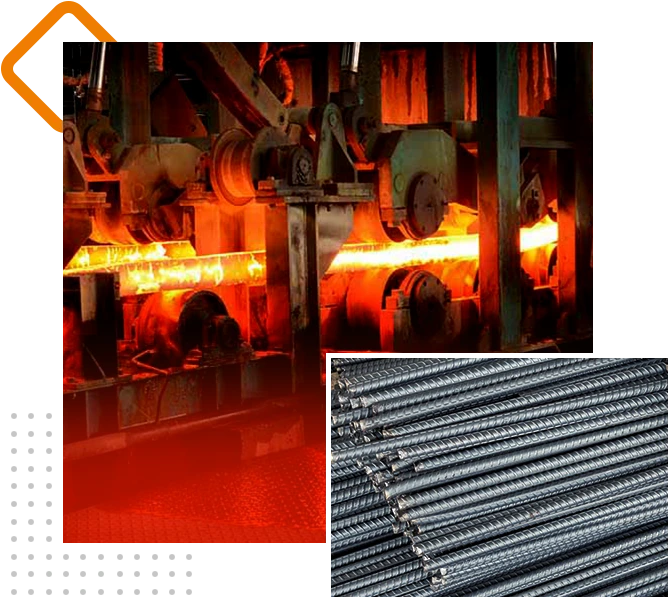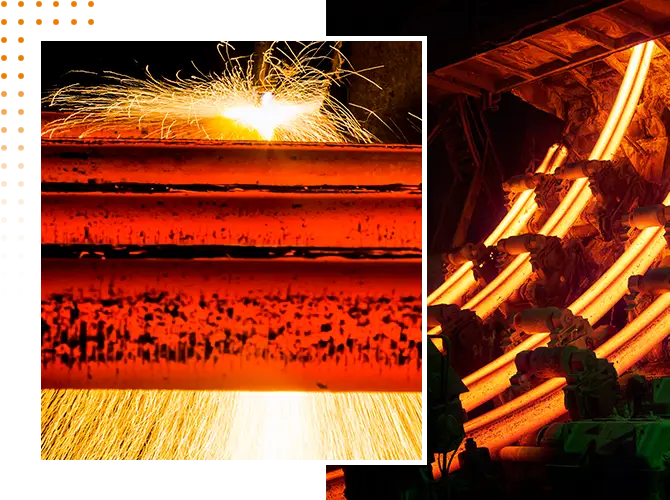Innovations in Steel production: What's happening in Bangladesh?
Innovations in steel production: What's happening in Bangladesh? The steel industry in Bangladesh is actively embracing innovation and sustainability to cater to the increasing demand for steel products while minimizing its environmental footprint.
Notable advancements, including hydrogen-based steelmaking, direct reduced iron (DRI) production, energy efficiency measures, waste reduction initiatives, and closed-loop recycling programs, are transforming the sector.
Government support and favorable regulatory policies play a crucial role in propelling these innovations, positioning Bangladesh's steel industry for enhanced competitiveness and greater environmental consciousness.

Innovations in Steel production
The steel industry is constantly evolving, with new innovations being developed to make steel production more efficient, sustainable, and cost-effective. Here are mentioned some most promising innovations in steel production:
- Hydrogen-based steelmaking: Hydrogen is a clean and sustainable fuel that can be used to replace coal and coke in the steelmaking process. This would significantly reduce the carbon emissions from steel production, which are responsible for about 8% of global emissions.
- Direct reduced iron (DRI) production: DRI is a form of iron that is produced without the use of coal. This makes it a more environmentally friendly option than traditional steelmaking methods. DRI can be used to produce steel in a variety of ways, including in electric arc furnaces (EAFs) and hybrid arc furnaces (HAFs).
- Carbon capture and storage (CCS): CCS technology can capture and store carbon emissions from steelmaking plants and store them underground. This would prevent the emissions from entering the atmosphere and contributing to climate change.
- Biochar production: Biochar is a type of charcoal that can be produced from biomass. It can be used to reduce the amount of coke needed in the steelmaking process, which would also reduce emissions.
- Closed-loop recycling: Closed-loop recycling is a process where steel scrap is recycled back into the same type of steel product. This can reduce the need to mine new iron ore and coal, which would save energy and resources.
- Sensor-based monitoring: Sensor-based monitoring systems can be used to track the performance of steelmaking equipment and identify potential problems before they occur. This can help to prevent downtime and improve efficiency.
- Artificial intelligence (AI): AI can be used to optimize steelmaking processes and improve product quality. It can also be used to predict maintenance needs and reduce downtime.
- Robotics and automation: Robotics and automation can be used to perform many of the dangerous and repetitive tasks in steelmaking plants. This can improve safety and productivity.
- 3D printing: 3D printing can be used to produce complex steel parts that would be difficult or impossible to manufacture using traditional methods. This could lead to the development of new and innovative steel products.
What's happening in Bangladesh’s Steel industry?
Bangladesh's steel industry innovates for sustainability with hydrogen-based steelmaking, energy efficiency, and recycling initiatives. Five key points are given below:
- Adoption of hydrogen-based steelmaking technologies: Several Bangladeshi steel companies are investing in hydrogen-based steelmaking projects, with government support. This is a significant step towards reducing greenhouse gas emissions from the steelmaking process.
- Development of direct reduced iron (DRI) production facilities: Bangladesh has seen a significant increase in DRI (direct reduced iron) production capacity in recent years. DRI is an intermediate product in steelmaking that is produced without the use of coal, making it a more environmentally friendly option than traditional steelmaking methods.
- Energy efficiency measures: The industry is implementing various energy efficiency measures to optimize its processes and minimize resource consumption. This includes the adoption of advanced technologies and practices to reduce the overall energy footprint of steel production in Bangladesh.
- Waste reduction initiatives: Bangladesh's steel industry is actively engaged in initiatives to reduce waste generated during the manufacturing process. This commitment to waste reduction aligns with broader sustainability goals, emphasizing responsible and environmentally conscious practices.
- Closed-loop recycling programs: Embracing closed-loop recycling programs, the steel industry in Bangladesh is working towards a circular economy model. By recycling and reusing steel products, the industry aims to minimize waste, conserve resources, and contribute to a more sustainable and eco-friendly production cycle.

Ending
Chakda Steel & Re-Rolling Mills (Pvt.) Ltd (CSRM) stands as a prominent company in Bangladesh's steel industry. With a three-decade legacy, the company has played a pivotal role in the country's steel and economic sectors. Recognized for its excellence in products and services, CSRM has become synonymous with quality steel products, earning widespread acknowledgment as the go-to name for rods and steel in Bangladesh.
Learn More